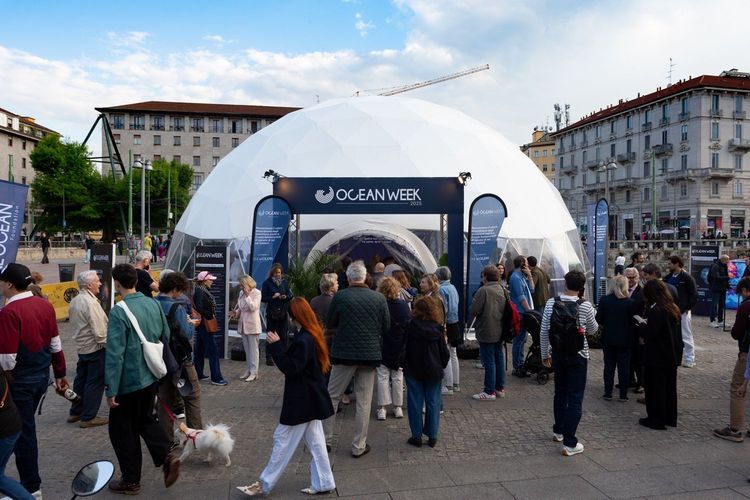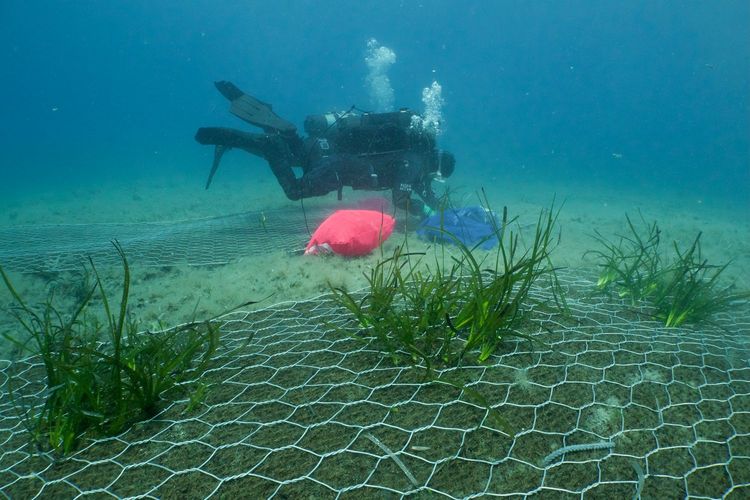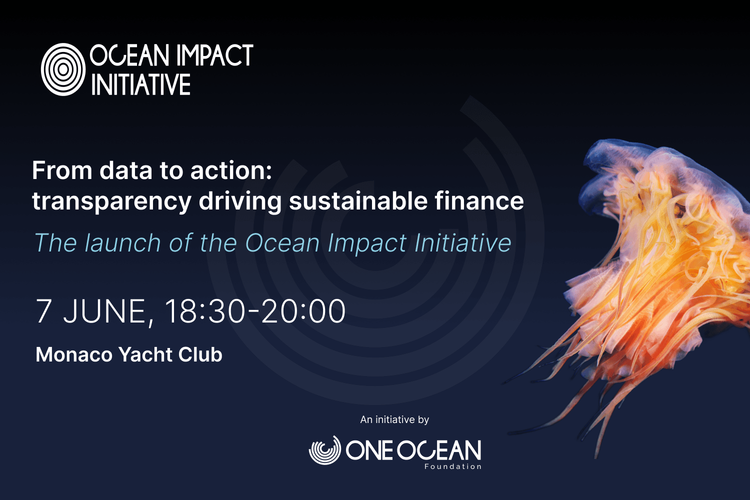
Just over a year after the start of the Blue Forest project, we are pleased to announce the beginning of our fourth ecological restoration of Posidonia oceanica forests.
The new site, a 100 m2, is located in Porto Vecchio, Sanremo, where at a depth of 12 meters, about 2000-2500 cuttings recovered from those found loose on the seabed, uprooted due to anthropogenic impacts from beach and harbour defence work, and natural, such as strong sea storms, have been planted.
This time, in addition to the biomats technique used so far, we decided to implement a new method involving metal stakes of about 30 cm long to anchor individual Posidonia oceanica cuttings directly to the seabed. With this method, we will cover 10 square meters of degraded meadow.
The cuttings selected for this technique are those with a plagiotropic rhizome, which grows horizontally. Conversely, cuttings with an orthotropic rhizome, which grows vertically and is ideal for insertion between the meshes of nets, are used for the biomats technique, characterized by their "V" shape.
Additionally, 12 of the 90 square meters involving the use of biomats will be covered solely with coconut fibre nets, without the usual wire mesh. Although the methodology remains the same, using only natural material could yield different, and potentially better, results.
"The adoption of three different techniques at the same intervention site represents an important scientific opportunity" comments Chiara Robello, a researcher at the University of Genoa whom One Ocean Foundation is supporting through the funding of a doctoral fellowship, "This approach will allow us to evaluate which technique offers the best results under the same environmental conditions, helping to refine anchoring methodologies for Posidonia transplants, which are currently one of the most complex aspects of these interventions."
The site will be monitored for three years by researchers from the University of Genoa, to collect data useful for scientific research on Posidonia oceanica reforestation, assessing the condition of the transplanting site, the new plants and the biodiversity in addition to the ecosystem services associated with the habitat.


